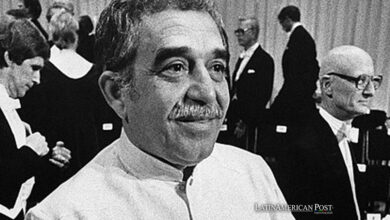France: Macron VS Yellow Vests
Listen this article
With new days of demonstrations, the French are marching under the military gaze

Since November 2017, thousands of French have gone to the main streets of different cities to march, initially, against the rise in the price of fuel. The movement, which was generated through social networks, has generated a crisis in the government of President Emmanuel Macron.
Leer en español: Francia: Macron VS Chalecos Amarillos
The days have been characterized by vandalism and the hundreds of arrests that the police have made. However, the protests of March 16 marked a new stage, due to looting and destruction within the emblematic Champs-Elysées, where different shops and newspaper kiosks were vandalized.
As a result, the French government announced that by Saturday, the military forces would also be present to monitor the protests; besides operating under strict orders, because "the French soldiers will be allowed to shoot real bullets in the protests foreseen by the movement of the yellow vests", according to Canarias Semanal.
French General Bruno Leray said that the military "are perfectly capable of assessing the nature of the threat and acting accordingly" in a proportionate manner, according to the same media. Meanwhile, protesters who have marched every Saturday since the days began, said that "we are not afraid of the military forces nor the police, because we are not destroying anything. I manifest myself because I want to be able to eat also from the 20th of each month and I will continue doing it until we can live better ", according to statements delivered by Víctor to El País.
As a result, 40,500 French took to the streets and the day left "8,545 preventive controls, and 83 arrests from early in the day in Paris", according to La Razón. Given the above, Interior Minister Christophe Castaner, told the media that "the republican order has been respected," according to the same media.
Maybe you want to read: France: what is the 'European Renaissance' of Macron?
Do Yellow Vests are useful?
Four months of protests, caused by the Yellow Vests, France has been mired in a political crisis. While the movement began through Facebook and was based on discontent with the rise in the price of fuel, more reasons were added to the cause: the high cost of living and the tax burden.
However, one of the main problems presented by this movement is the lack of clear leaders, so the initial reasons for the protests were lost and replaced by days full of violence and aggression. To this, we must also add the anti-Semitic accusations that spattered this movement, after the insults made to the philosopher Alain Finkielkraut.
The movement proclaimed itself as the "loudspeaker of the French people" but every day it moves further away from that representation to the people of France. Against this, El Periódico states that "the repeated violence towards journalists and police officers and the clashes with truck drivers that have claimed several lives have made the demands of the yellow vests lose legitimacy".
As a result of this, political leaders like Marie Le Pen have taken advantage of this jumble of ideals to attack Macron, supporting the idea of the protesters asking for a plebiscite on the president's policies.
Thus, in January, the main opposition leader referred to this fact: "in the context of the healthy popular revolt of the yellow vests, these elections offer the possibility of ending the crisis that has been born of the intransigence of an incompetent president whose behavior is annoying", according to The Huffington Post.
Although the days of demonstrations have been supported by thousands of French, the truth is that their existence depends on the decisions Emmanuel Macron. According to the sociologist Alexis Spire and in dialogue with El Periódico, "if Macron is limited to respond with institutional reforms -introduce a dose of proportionality in the legislative elections or expand the recourse of the referendum- will reduce the crisis to a political dimension without stopping the social and fiscal inequality that is at the origin of the discontent".
8500 Detenidos
15 Asesinados por la policia.
Cientos de heridos incluidos mutilados.@EmmanuelMacron amenazando con encerrar a 85.000 Franceses.El ejercito en las calles con orden de matar a sus vecinos.
Y el problema es que en #Venezuela no hay Democracia.#ChalecosAmarillos pic.twitter.com/6KLxb2CN6o
— ChalecosAmarillos Global (@ChalecosAmarill) 25 de marzo de 2019
The decisions of Macron
As a way to contain the protests, the French president held a great national debate that was carried out between January 15 and until March 15, in which he tried to try to calm the smoke of the citizens through the collection of complaints. The above resulted in around 10,000 meetings and more than one million contributions through the Internet.
When the results are published, Macron will give the conclusions at the end of April and is expected to agree to some changes; nevertheless and on several occasions, the president has assured that he is willing to dialogue but that does not mean that he will agree to the change of everything the yellow vests demand.
While France faces one of its worst political crisis, there is a factor that plays into Macron's favor. "Macron's only advantage over his predecessors is that he is alone. There is no structured opposition. There is neither a right nor a left a credible government party", according to political scientist Gilles Ivaldi in dialogue with El Periódico.
This is how the upcoming elections to the European Parliament in 2019 will be key to observing "the real erosion of Macron – or the opposite – and the ability of the right and left opposition to take advantage of the malaise", according to La Vanguardia. In addition to being "a referendum on its management and the results and implementation of the ideas obtained from the Great Debate will determine the success of the next three years of his government," according to El Nuevo Siglo.
LatinAmerican Post | Laura Viviana Guevara Muñoz
Translated from "Francia: Macros vs. Chalecos amarillos





